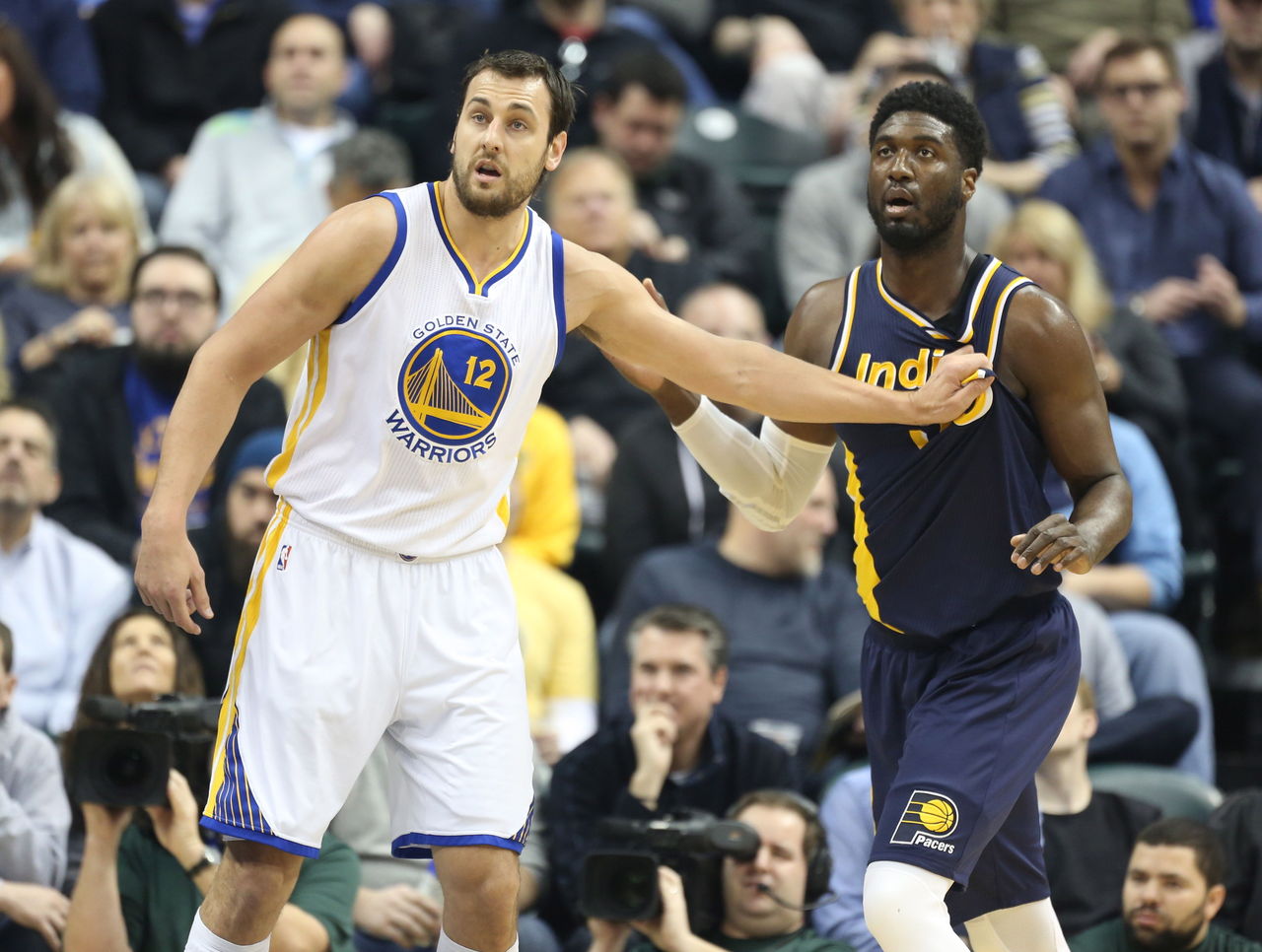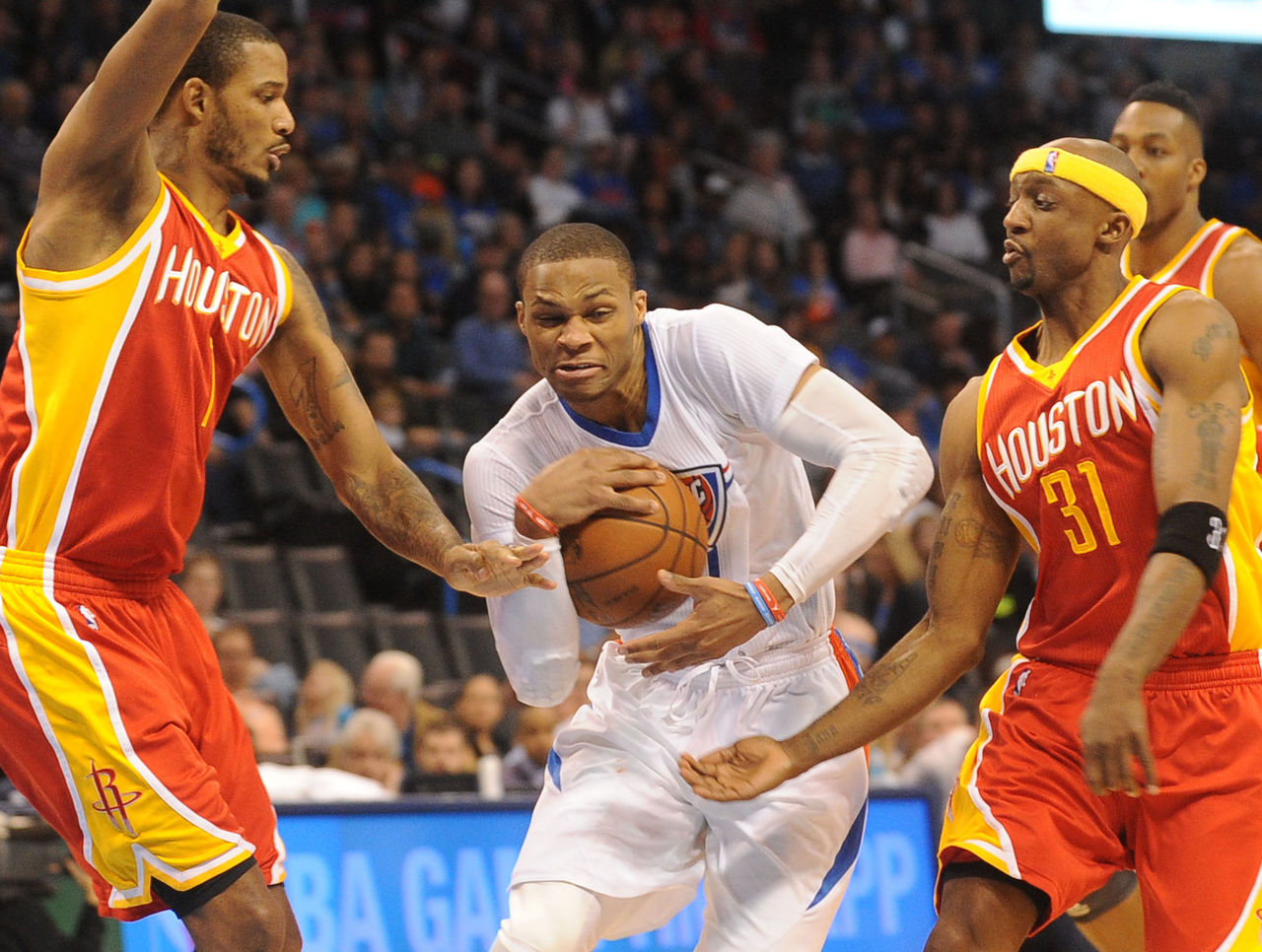DFS: Basic NBA Strategy - Knowing Your Team Defenses
Want to succeed in daily fantasy basketball? Get defensive.
Most casual players spend the majority of their time researching players in hopes of gaining a much-needed edge. But it’s just as important to consider who those players are facing on a given night - and how to use those matchups to your advantage.
The best way to get started is by analyzing team defensive stats - but bear in mind that these stats aren’t all that helpful early in the season. Until you have a large enough sample size to be able to rely on these, you’ll need to opt for other variables (discussed at the end of the post).
Here are the most important defensive stats to investigate when researching defenses:
Points against per game: The simplest measure of a defense’s effectiveness. Teams that allow more points represent better matchups in DFS play, and should be targeted at all times. Conversely, teams that allow fewer points should be avoided whenever possible.
Field goal percentage against: Documents how well opposing teams shoot against a given defense. Using this in tandem with the previous statistic will give DFS players a two-pronged look at the efficiency of a defense when it comes to scoring prevention.
Defensive efficiency: This stat breaks down the number of points a team permits per 100 possessions. It’s more of a catch-all compared to the two statistics above; a team that allows 105 points or more per 100 possessions is a prime target for opponent DFS plays.
Pace: This is more of an offensive statistic, but can help players make informed calls on which defenses to target. Pace documents team possessions per game, enabling DFS players to focus on teams that play at a quicker pace - and often allow more points as a result.
Though you’ll likely unearth countless other handy stats, these should provide a solid base.

Unlike most other sports, NBA defense can be easily broken down by position; while clubs do rely on defensive schemes, their defense is only as good as the players executing those schemes. So DFS players will also need to evaluate each position separately.
You may have to do a little more digging to find defense vs. position stats, but they’re out there. Here are some of the key categories to consider:
Points/rebounds/assists allowed per game: These base stats will give you a good idea of how generally efficient a team was at defending that position over the course of the season. While they’re limited in the amount of information they provide, they do serve some purpose.
Field goal and 3-point percentage against: These are better measures of how good - or bad - a team was at defending a position. A team allowing 24 points per game on 40 percent shooting is more effective than a team allowing 24 points per game on 47 percent shooting.
Turnovers forced: Teams that force plenty of turnovers can provide major problems for skill players opposing them - and those problems are passed on to DFS players, since turnovers result in negative points. Avoid teams adept at forcing turnovers - they could cost you big.

As a general rule, here’s how to use opposing defense stats to gain an edge:
Take the star with the best matchup. If Chris Paul is facing the seventh-best point guard defense and Russell Westbrook is facing the 26th-ranked point guard D, the choice should be a simple one. Use defensive rank to help decide which studs to roster.
Seek mid-range players with good matchups. Players in the middle of the salary chart tend to have the greatest range of possible outcomes - so matchup becomes especially critical here. Look for bottom-5 defenses and exploit them freely.
Use matchups to identify low-salary steals. It isn’t easy to pluck a player from the bottom of the grid and hope to succeed - but a good matchup can boost a player’s value considerably. Factor in defensive rank, and your chances of finding a steal increase.
Don’t always fear the tough matchup: Great players are virtually matchup-proof - so if you identify a player in a good position to return value but are worried about the opposing defense, don’t be. Consider all factors, not just the opponent.